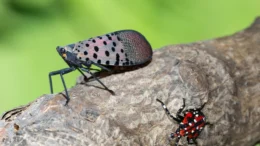By SALLY BELL
Staff writer
State cost-cutting measures are keeping Cranberry Area School District’s pheasant habitat empty just a bit longer.
Students with the district’s Conservation Club started building the pheasant enclosure in 2015 in preparation for raising the birds to adulthood.
Students raised money for the project and provided labor to build the habitat.
A main brooder house and fly pen area across from the ball fields are nearly complete and empty, awaiting the pheasant chicks. Cranberry students in the Conservation Club plan to raise and then release the birds.
Last week, the Pennsylvania Game Commission sent out a news release saying that two long-running programs that enabled groups and individuals to raise pheasants for release in their local areas have come to an end in an effort to cut costs.
“Cost-cutting measures, like the changes we’re implementing to the pheasant propagation program, are necessary to balance the agency’s budget until a license-fee increase finally is approved,” said R. Matthew Hough, the Game Commission’s executive director, in the news release.
Until now, the agency has been able to make cuts in areas that had less impact and probably went unnoticed, Hough went on to say.
“Unfortunately, more cuts will be needed to balance the budget for the coming fiscal year, and Pennsylvania’s citizens and wildlife resources have begun feeling the impact,” Hough said.
Unlike most state agencies, the Game Commission isn’t funded by tax dollars, the agency said. It relies primarily on revenue generated through the purchase of hunting and furtaker licenses – fees that are set by the General Assembly and have not been adjusted for inflation in nearly two decades, the Game Commission said.
“Yes, this is another hurdle we need to cross,” said Cranberry teacher Dustin Wenner, who is also the Conservation Club advisor.
“The Game Commission told us a year ago that they would donate day-old pheasants to our Conservation Club,” Wenner said. “However, due to them dropping their pheasant program, we will now have to purchase our eggs or day-old birds from a private game farm. This just adds cost to our program which is student-funded,” Wenner added.
Cranberry School District will be getting day-old chicks from Mahantongo Game Farm in Dalmatia, Wenner said. The chicks cost $1.10 per bird when purchased in lots of 500 chicks.
Mahantongo Game Farm waived the $300 shipping fee for the school district, Wenner said.
Wenner said donations from Clarion County Sportsmen for Youth and the Fryburg Sportsman’s Club will allow the brooder house to be fully completed by April.
“We still need to hook up a natural gas brooder and watering system inside the brooder house and put netting over our flight pen,” Wenner said.
Wenner also noted that Swartfager Welding and Knox Country Farm Supply also donated a ton of feed to help defray costs.
The district expects to have pheasant chicks in the habitat by early May.
On Cranberry school grounds, the main brooder house for the birds is a 25-by-25-foot pole building complete with doors, windows, shiplap siding and a concrete slab.
The catch pen area is about 30 yards wide and 90 yards long and connects to the brooder house. It provides an area for the birds to get outside and stretch their wings.
The district intends to use the habitat and birds to teach students about ecology and agriculture.








































